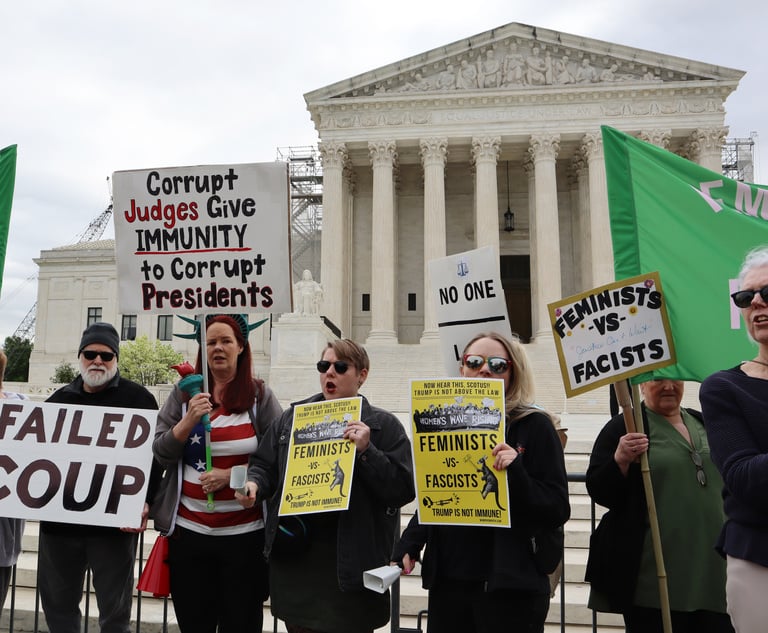The late Justice Antonin Scalia led a revolution in how to interpret the constitutional right to confront your accuser. Justice Neil Gorsuch on Monday seemed ready to carry the flag.
As a judge on the U.S. Court of Appeals for the Tenth Circuit, Gorsuch, who took Scalia’s seat after his death in 2016, had not written on the scope of the Sixth Amendment’s confrontation clause. But in a dissent Monday in an Alabama drunk-driving case, Gorsuch offered a hint of where he may be headed. Gorsuch, joined by Justice Sonia Sotomayor, had urged the court to take up the case.


 Neil Gorsuch testifies at his confirmation hearing in March. Photo: Diego M. Radzinschi/NLJ
Neil Gorsuch testifies at his confirmation hearing in March. Photo: Diego M. Radzinschi/NLJ






